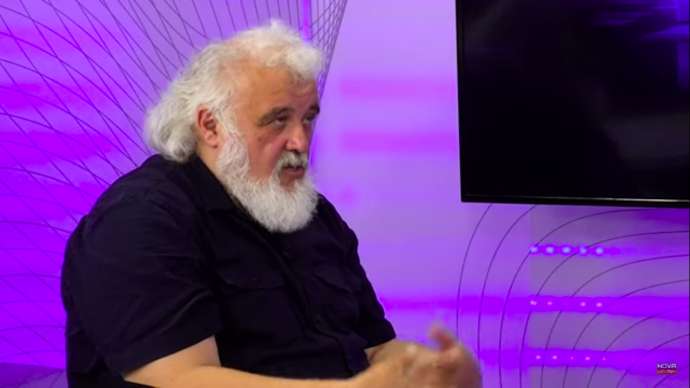STA, 30 May 2020 - The National Institute of Public Health (NIJZ) is in for a very difficult summer because of preparations for a second wave of the Covid-19 epidemic, NIJZ's new director Milan Krek told the STA. "The idea that the epidemic is over is actually fake news," he said about the formal end of the epidemic, warning that the second wave might be worse.
Apart from dealing with its regular work this summer, NIJZ will also make preparations for the second wave of the epidemic and try to help people deal with the recession that is expected to hit in the coming months if not years.
NIJZ is monitoring the epidemiological situation in Slovenia and other European countries and beyond. "We are on alert to see what could start where; we are also very active in controlling the crossings of the border. We are writing recommendations to many in Slovenia to reduce the possibility of the virus spreading."
A Covid-19 information system is being set up, but NIJZ is primarily working to increase the number of people who could help with epidemiological activities during the second wave, meaning in identifying those infected and ordering isolation or quarantine.
Currently, 29 NIJZ epidemiologists are working in the field, which Krek thinks is not enough to be able to respond to new outbreaks efficiently. He is hoping for some 130 people, which should be enough to control up to 30 new cases per day.
If isolation is ordered for those infected on time, the current situation could be maintained. "This means health treatment will be available, and health centres, schools, universities etc. open." But if the situation gets out of hand, the second wave could be worse than the first, Krek warns.
He says there is also a very small possibility that there will be no second wave. "But right now all signs point to a second wave, because we have very low immunity to the virus and because it is still out there, just waiting for favourable conditions to start spreading again."
The chances os the virus starting spreading again are increasing with the easing of restrictive measures, and with people not taking preventive measures, Krek says. "This gives it a change to find a nest again, and cause problems again."
The NIJZ head therefore believes people should not think the epidemic is actually over. "The idea that the epidemic is over is actually fake news. The fact is that we are in a different phase of this epidemic. We have a low number of infections, but that does not mean we're safe. We're not on the safe side."
NIJZ will thus promote preventive measures even when there are no more infections in the country. This means keeping a 1.5-metre distance between people or wearing protective masks. "In other words, this means that if you are taking a bus, we will still recommend you to wear a face mask."
Hygiene requirements and coughing etiquette will also remain in place, and NIJZ is planning to launch a big awareness campaign. Krek says that efforts to change habits such as hand-shakes and hugs should continue.
In case of a second wave, NIJZ will try to isolate the outbreak. "If it happens in a factory, it could be shut down if necessary. If it happens in a school, it will be closed as a last resort, and a quarantine will be set up. We're also thinking of putting entire towns in quarantine if there is a strong outbreak there."
An epidemic will be declared again if there are not enough hospital beds or if the NIJZ epidemiological service is not able to trace all infected persons.
Krek says the institute is doing all it can to make sure lockdown will not be necessary again but nothing is excluded.
Although his predecessors got into some quarrels with the government in the past months, Krek says the relations between NIJZ and the government are very good now. "I don't know how it was before, but right now we are an important player."
Krek says the decision to declare the end of the epidemic, which will step into force on Sunday, had been discussed for almost four weeks beforehand. "We were sending signals that it would make sense to consider ending this state of epidemic. And the government then adopted this decision."
All our stories on coronavirus and Slovenia are here






